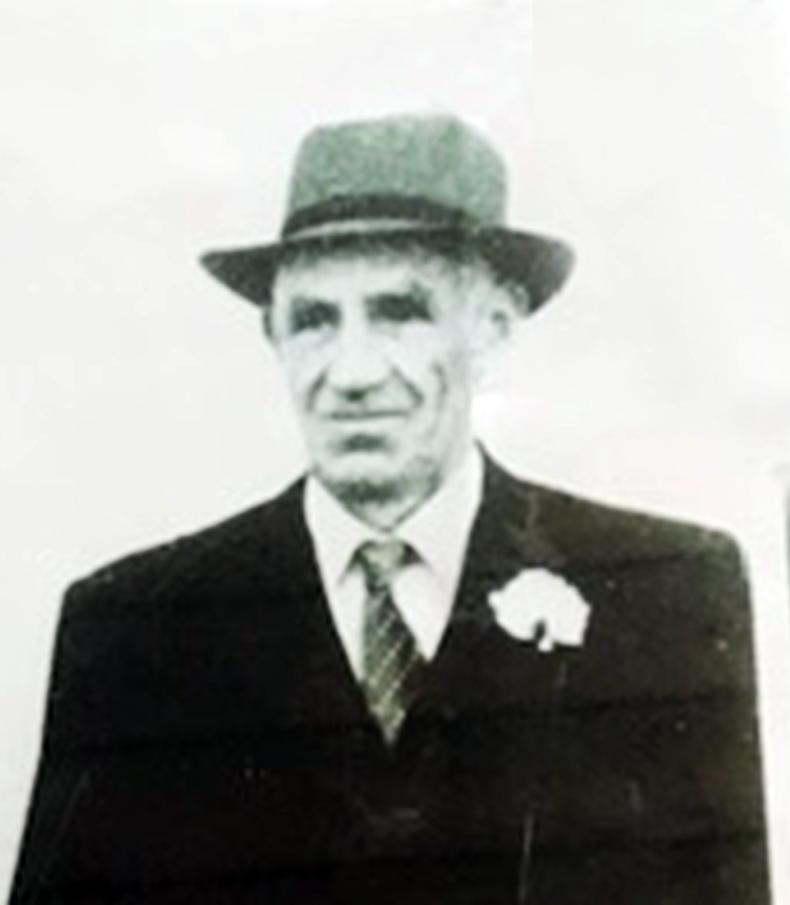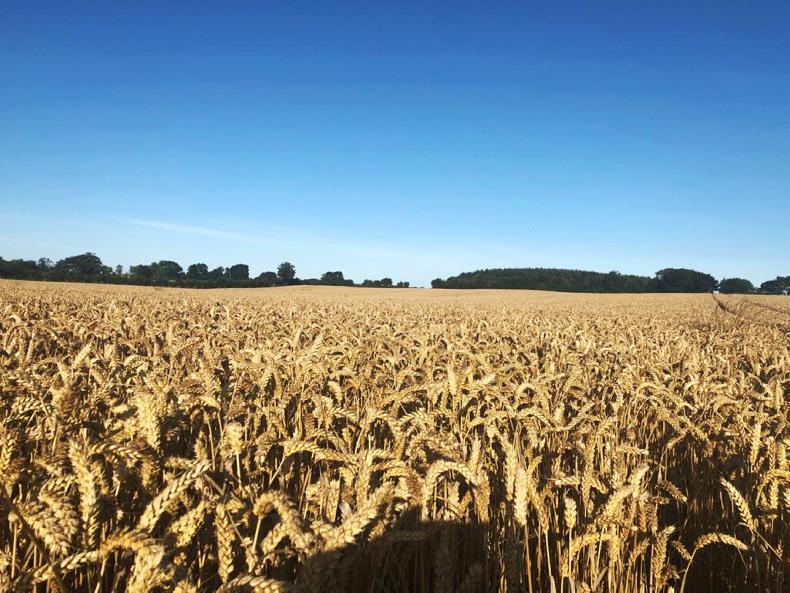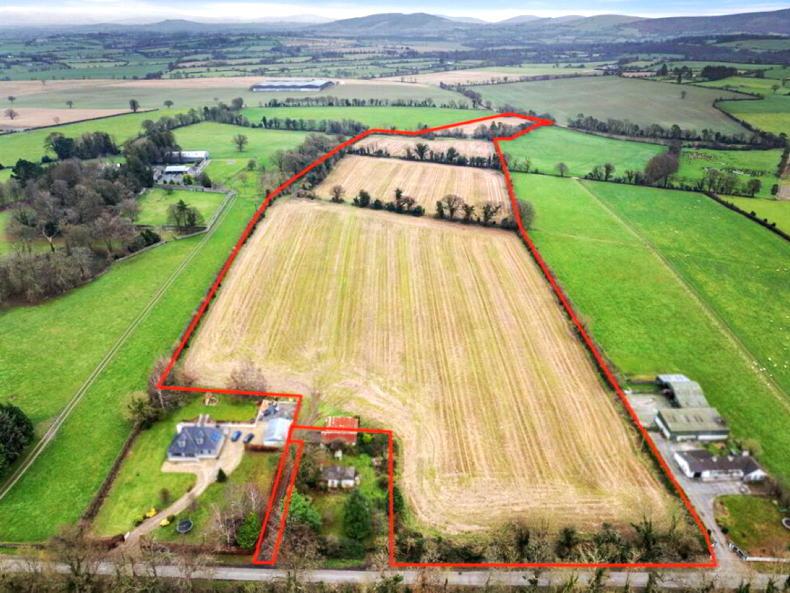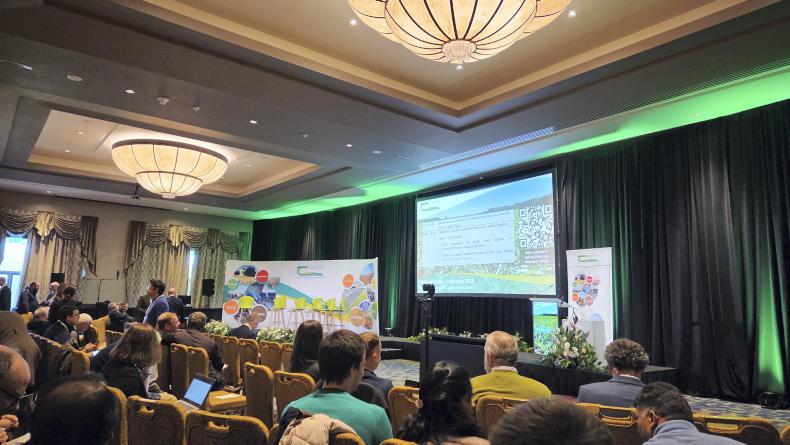It was late October in the early sixties when a letter arrived for my father, Pake Byrne, saying that he was in a competition to find the best wheat-grower in the catchment area which covered a good slice of the Barrow Valley in counties Kildare, Laois, Carlow and Kilkenny.
We all said it must be a mistake, as these prizes were always won by big farmers from the better wheat-growing land of Kildare. Our wheat was grown down on our small farm in Co Carlow, to give it its due, it’s not bad land either.
However, it turned out to be no mistake, and the manager of the local Co-Op sent out a message asking my father to attend at the Royal Hotel in Carlow the following week where the winners would be announced.
Despite being very sceptical of getting any prize, my father dressed up in his best suit, tie and hat, and prepared to drive to Carlow. There was great excitement as my mother and I headed for town with him in the old Ford Anglia. As we approached the Bonne Bouche café, we got the whiff of bacon and cabbage, and that drew us in for dinner, washed down by tea, while my father had a couple of halves of Powers.
We then walked nervously down to the hotel where a big crowd of farmers had already gathered for the occasion. But with no one from our area there, except the local agricultural instructor, my father felt a little out of place. The banter was good, however, and with some food and drinks laid on, he became more at ease as time went on.
There was great talk about the harvest and the price of cattle and the weather. There were wheat samples laid out in bowls, and much discussion about the size and shape of the grains and the likely winners.

Pake Byrne, Tom's father.
The tension rose as the manager called for silence and explained that the wheat was judged by taking a sample and measuring the bushel weight and the moisture content, as well as the general appearance of the grain. The result of these tests determined if the wheat would go for flour milling or animal feed, which in turn had a considerable bearing on the price paid for it.
The manager started with the third prize, and then announced the runner-up, but there was no mention of my father and, to be honest, I think he was relieved not to be in the limelight.
After another call for silence, to everyone’s surprise the manager officially announced that Pake Byrne had grown the best bushel-weight of wheat supplied to the co-operative that year. The co-op manager called him to the stage and the chairman presented him with the cup. All the other farmers gathered round, shook his hand and congratulated him on his win.
My father was not a regular drinker, but he could handle a few whiskies if the occasion arose, and this surely was one of those occasions
While my father was a humble and shy man, I think he took great pleasure in getting one up on some of those big farmers who might not have considered him in their league when it came to growing wheat.
The manager filled the cup, invited my father to take the first drink and then passed it around. There was lemonade and biscuits for all the children - a rare enough treat in those days.
My father was not a regular drinker, but he could handle a few whiskies if the occasion arose, and this surely was one of those occasions. After some celebration, we were despatched, with him staying behind to do some “shopping”.
It was much later when a car pulled up outside and the co-op manager came in looking very sheepish, followed by my father loudly singing The Moon Behind the Hill, one of his favourite songs. The manager was mortified, as he thought that my mother would blame him for giving my father too much drink. But he needn’t have worried, as my mother knew that he would sleep it off and be alright in the morning.
After all the excitement, we were up early the next morning. My father was already up before us and gone for the cows to do the milking. When he came in for the tea later that morning my mother gave him a bit of a ribbing about drinking to excess, and chatted about the events of the evening before.
That evening, all the neighbours came to our house to congratulate my father on his win. My mother put out the best tablecloth and our best delf, and made tea and sandwiches for all, as if it was a threshing or the Parish Priest was coming. As the evening wore on there were also a few bottles of stout and the odd whiskey drank to salute the achievement.
There was a great sense amongst the neighbours that this was a victory for the small farmer, and you could see they took great pride and satisfaction that on this occasion one of their own had come out on top.
The cup stood on the dresser in the kitchen for a long time afterwards, and was always the subject of conversation when we had visitors or neighbours called in. The story of my father’s victory was recounted many times over the years, and we always had a good laugh at the goings-on of that harvest time.
It was late October in the early sixties when a letter arrived for my father, Pake Byrne, saying that he was in a competition to find the best wheat-grower in the catchment area which covered a good slice of the Barrow Valley in counties Kildare, Laois, Carlow and Kilkenny.
We all said it must be a mistake, as these prizes were always won by big farmers from the better wheat-growing land of Kildare. Our wheat was grown down on our small farm in Co Carlow, to give it its due, it’s not bad land either.
However, it turned out to be no mistake, and the manager of the local Co-Op sent out a message asking my father to attend at the Royal Hotel in Carlow the following week where the winners would be announced.
Despite being very sceptical of getting any prize, my father dressed up in his best suit, tie and hat, and prepared to drive to Carlow. There was great excitement as my mother and I headed for town with him in the old Ford Anglia. As we approached the Bonne Bouche café, we got the whiff of bacon and cabbage, and that drew us in for dinner, washed down by tea, while my father had a couple of halves of Powers.
We then walked nervously down to the hotel where a big crowd of farmers had already gathered for the occasion. But with no one from our area there, except the local agricultural instructor, my father felt a little out of place. The banter was good, however, and with some food and drinks laid on, he became more at ease as time went on.
There was great talk about the harvest and the price of cattle and the weather. There were wheat samples laid out in bowls, and much discussion about the size and shape of the grains and the likely winners.

Pake Byrne, Tom's father.
The tension rose as the manager called for silence and explained that the wheat was judged by taking a sample and measuring the bushel weight and the moisture content, as well as the general appearance of the grain. The result of these tests determined if the wheat would go for flour milling or animal feed, which in turn had a considerable bearing on the price paid for it.
The manager started with the third prize, and then announced the runner-up, but there was no mention of my father and, to be honest, I think he was relieved not to be in the limelight.
After another call for silence, to everyone’s surprise the manager officially announced that Pake Byrne had grown the best bushel-weight of wheat supplied to the co-operative that year. The co-op manager called him to the stage and the chairman presented him with the cup. All the other farmers gathered round, shook his hand and congratulated him on his win.
My father was not a regular drinker, but he could handle a few whiskies if the occasion arose, and this surely was one of those occasions
While my father was a humble and shy man, I think he took great pleasure in getting one up on some of those big farmers who might not have considered him in their league when it came to growing wheat.
The manager filled the cup, invited my father to take the first drink and then passed it around. There was lemonade and biscuits for all the children - a rare enough treat in those days.
My father was not a regular drinker, but he could handle a few whiskies if the occasion arose, and this surely was one of those occasions. After some celebration, we were despatched, with him staying behind to do some “shopping”.
It was much later when a car pulled up outside and the co-op manager came in looking very sheepish, followed by my father loudly singing The Moon Behind the Hill, one of his favourite songs. The manager was mortified, as he thought that my mother would blame him for giving my father too much drink. But he needn’t have worried, as my mother knew that he would sleep it off and be alright in the morning.
After all the excitement, we were up early the next morning. My father was already up before us and gone for the cows to do the milking. When he came in for the tea later that morning my mother gave him a bit of a ribbing about drinking to excess, and chatted about the events of the evening before.
That evening, all the neighbours came to our house to congratulate my father on his win. My mother put out the best tablecloth and our best delf, and made tea and sandwiches for all, as if it was a threshing or the Parish Priest was coming. As the evening wore on there were also a few bottles of stout and the odd whiskey drank to salute the achievement.
There was a great sense amongst the neighbours that this was a victory for the small farmer, and you could see they took great pride and satisfaction that on this occasion one of their own had come out on top.
The cup stood on the dresser in the kitchen for a long time afterwards, and was always the subject of conversation when we had visitors or neighbours called in. The story of my father’s victory was recounted many times over the years, and we always had a good laugh at the goings-on of that harvest time.










SHARING OPTIONS